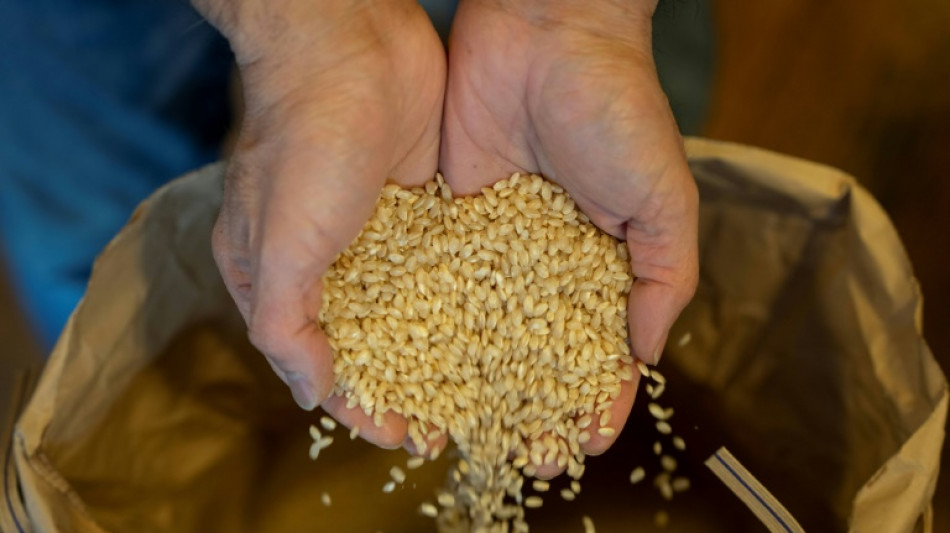
RYCEF
-0.1000


The Japanese government said Friday it will release a fifth of its emergency rice stockpile after hot weather, poor harvests and panic buying over a "megaquake" warning nearly doubled prices over a year.
Japan has previously tapped into its reserves to cope with disasters, but this marked the first time since the stockpile was built in 1995 that it was doing so because of supply chain problems.
Some supermarket shelves were emptied in August of rice following a week-long holiday, a series of typhoons and warnings of a looming major earthquake that has so far failed to materialise.
The government had initially hoped prices would stabilise late last year once newly harvested rice arrived in stores, but inflation continued unabated, this time because some distributors were hoarding for fear of running out.
Agriculture Minister Taku Eto told reporters on Friday the government will release 210,000 tonnes of rice from its stock of one million tonnes.
"I hope you will take this as our strong determination to improve at all costs the situation where distribution has been delayed and stuck," he said.
Rice prices had already began to change consumption patterns for some like Tokyo resident Eriko Kato.
"I still do buy rice occasionally, but since it's so expensive I sometimes give up on buying it once I see the price," Kato, 41, told AFP.
A five-kilogramme (11-pound) bag was retailing at 3,688 yen ($24) in the last week of January, according to a government survey, up from 2,023 yen last year.
- Cashing in on crisis -
The law for the government to stockpile the grain was enacted in 1995 after a major rice crop failure two years earlier sent shoppers scrambling to buy the staple.
Masayuki Ogawa, assistant professor at Utsunomiya University, told AFP that a series of factors had contributed to the current crisis.
Among them is the tourism boom and shortage triggered by the extreme heat in 2023 -- joint record hottest summer.
The crisis was exacerbated by distributors that were believed to be hoarding in hopes of cashing in later, he said.
"It's suspected that some distributors are trying to make a profit, waiting for the price hike," he explained.
But he estimates the price increase could stop if these distributors are forced to release their rice after the government's move.
The reserve release is "a complicated operation," as government intervention could impact the stability of rice production and producers' earnings in the long term, he said.
To prevent the distorting effect, the government is required to buy back the same amount of rice it released within a year.
Rice consumption in Japan has more than halved in the past 60 years to about 50.9 kilogrammes (112 pounds) in 2022, but the grain remains deeply ingrained in Japanese culture and its harvesting has shaped the nation's landscape -- even being used in Shinto rituals.
Tokyo resident Kato says she "sometimes just switches to noodles like udon or soba instead" because rice is more expensive.
But "rice is food for our soul," she said. "It is important."
B.Carter--ThChM